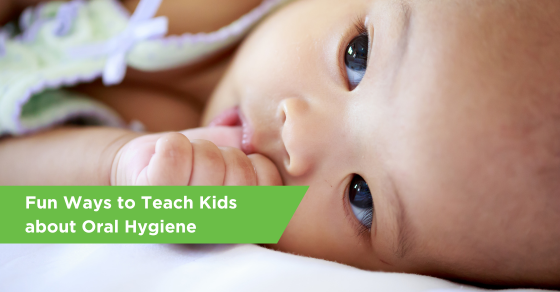Oral Habits in Children: Thumb Sucking and Pacifiers
- October 25th, 2023
- Childrens Dental Tips

As parents, we often wonder what is considered normal when it comes to our children’s behavior and development. One common concern many parents have is regarding their child’s oral habits, particularly thumb sucking and pacifier use.
As parents, we often wonder what is considered normal when it comes to our children’s behavior and development. One common concern many parents have is regarding their child’s oral habits, particularly thumb sucking and pacifier use. While these habits are perfectly natural for infants and young children, it’s essential to understand when they might become problematic and what steps you can take to address them.
Why Do Children Develop Oral Habits?
Oral habits like thumb sucking and pacifier use typically develop during infancy as a way for babies to self-soothe. These habits can provide comfort and security, helping infants navigate the world around them. In most cases, these habits are harmless and tend to diminish as a child grows older and finds alternative ways to cope with their emotions.
When Should You Be Concerned?
Thumb sucking and pacifier use are generally considered normal during the first few years of a child’s life. However, there are some key factors to consider if these habits persist beyond a certain age:
Dental Impact: Prolonged thumb sucking or pacifier use can affect the development of a child’s teeth and jaw. It may lead to misalignment, an open bite, or other orthodontic issues.
Speech Development: Persistent oral habits can potentially interfere with speech development, affecting pronunciation and articulation.
Social Considerations: As children grow older, they may face social challenges if they continue to rely on thumb sucking or pacifiers, as peers may tease them or find it unusual.
How to Help Your Child Break the Habit
If you’re concerned about your child’s thumb sucking or pacifier use, here are some tips to help them break the habit:
Positive Reinforcement: Praise your child when they refrain from sucking their thumb or using a pacifier. Offer rewards or small incentives to motivate them.
Identify Triggers: Pay attention to the situations or emotions that trigger the habit. Help your child find alternative ways to cope with stress, anxiety, or boredom.
Gradual Reduction: Encourage gradual reduction in the habit. For example, limit pacifier use to specific times, like bedtime, or ask your child to try going without it for longer intervals.
Distract and Redirect: Provide your child with toys or activities that keep their hands and mouth occupied, reducing the urge to suck their thumb or use a pacifier.
Talk to a Dentist: If you’re concerned about the impact on your child’s dental health, consult a pediatric dentist. They can provide guidance and monitor your child’s oral development.
Peer Influence: Sometimes, peer pressure can be a powerful motivator. Encourage playdates with children who do not have these habits, as peer influence can be a positive factor.
Conclusion
Thumb sucking and pacifier use are typical behaviors in infants and young children. Most children naturally outgrow these habits as they get older. However, if these habits persist and raise concerns about dental or speech development, it’s essential to take steps to help your child break the habit. Remember that patience, positive reinforcement, and professional guidance can play a significant role in helping your child transition away from these oral habits and maintain their oral health.
Reach Out to Our Kids-Only Dentist TodayAre you searching for a friendly and experienced children’s dentist to help your child maintain a healthy smile early on? Luckily, our kids-only dentist in Kitchener and team are always welcoming new patients with no referral necessary. To book an appointment, call SmileTown – Just Kid’s Dentistry at (226) 773-1663, or contact us here.

